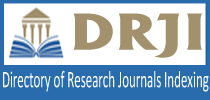
Articles are Open Access and Licensed under a Creative Commons Attribution-NonCommercial 4.0 International License.
WRITING GUIDE
Author Guidelines
The GPT-StudioS is a biannually publishing journal that releases its issues periodically in June, and December. Our journal welcomes different papers such as research, a research note (letter), review, book reviews and letters to the editor.
The maximum number of words in research articles is 8000 including the references; in short research articles (2000 words); in review articles (5000 words); it is 1500 words in the types of letters to the editor and book reviews. For this reason, the type and word count of the article should be specified in the relevant section. The publication language of the GPT-StudioS is English. The journal plans to continue its publication life at an international level.
The English Abstract of the Article consists of 200 (min.)-250 (max.) words; Keywords should consist of 3 (min) -5 (max.) words/word groups. The journal editorial policy expects the papers to be designed according to scholarship rules and traditions; for example, all research papers have to include an introduction, literature review (its variants-theoretical framework or conceptual framework), methods, results, the discussion which need to be followed a section of implications for the sector and theoretical and methodological contribution. This also means that professionals from the sector also welcome publishing research notes and research letter types of papers to submit to the GPT-StudioS, a sector-friendly journal.
All papers submitted to GPT-StudioS are expected to meet the journal’s writing and citations rules that this journal adapts to the APA 7th standards. Please see the following link to reach the detail:
https://aut.ac.nz.libguides.com/APA7th
For the papers to bring the journal's format, there is a template form of the manuscript that can be found on the website's page (https://gpt-studios.org/Manuscript_Template.docx). Please put the paper into this format ahead of submission. The still section on the document might help to design the paper according to the structure of GPT-StudioS. The author(s) are required uploading a copy with author names and a copy of the anonymous version together with the signed copy-right form by the author/authors.
Publication Policy and Ethical Principles
Studies submitted to the GPT-StudioS must not have been published elsewhere or submitted for publication. However, studies submitted as papers and whose abstracts or full texts are published are accepted provided that necessary updates are made. This should be acknowledged in the relevant parts of the manuscript.
The GPT-StudioS employs a double-blinded peer-review process which is managed by a member of the editorial team. This journal aims to provide the authors with timely concrete feedback for a non-delayed quality publication process. Therefore, the authors have been required to answer with the following method. When you revise your manuscript, please highlight the changes you make in the manuscript using the track changes mode in MS Word or by using bold or coloured text and upload the three files (with track changes; with all changes accepted and with the notes to the reviewers).
All paper submitted to the journal should be made via a professional management system of journal agent through which the GPT-StudioS has run. This means that all the process dealing with the paper’s publication stages will be undertaken over the online management system. Therefore, we would like all authors to communicate with the editorial team with the communication tools of the journal agent. In the administrative process, all submitted papers are to be checked for their complement to the journal’s publication and submission rules. Alongside the writing rules, the journal employs a crossref system to check the paper’s similarity with other published or unpublished materials with an integral system. The journal policy on the similarity is 20 per cent which is not to be exceeded.
All manuscripts submitted to the journal should comply with both research and publication ethical rules. For example, the recommendations of the ICMJE (International Committee of Medical Journal Editors) and COPE (Committee on Publication Ethics) should be considered when submitting research articles. If the paper needs an ethical approval from the relevant committee of the institutions, the relevant document should be submitted to the journal.
©2021 by the authors; license GPT-StudioS, Ankara, Turkey. This journal includes open-access articles distributed under the terms and conditions of the Attribution-NonCommercial 4.0 International (CC BY-NC 4.0) License (https://creativecommons.org/licenses/by-nc/4.0/). There is no publication charge or Article Processing Charge (APC) in Geographies, Planning & Tourism.
Geographies,Planning & Tourism adopts Creative Commmons Licence (CC BY-NC). In this manner, all authors reserves their rights about the papers, yet they may not use commercially.













